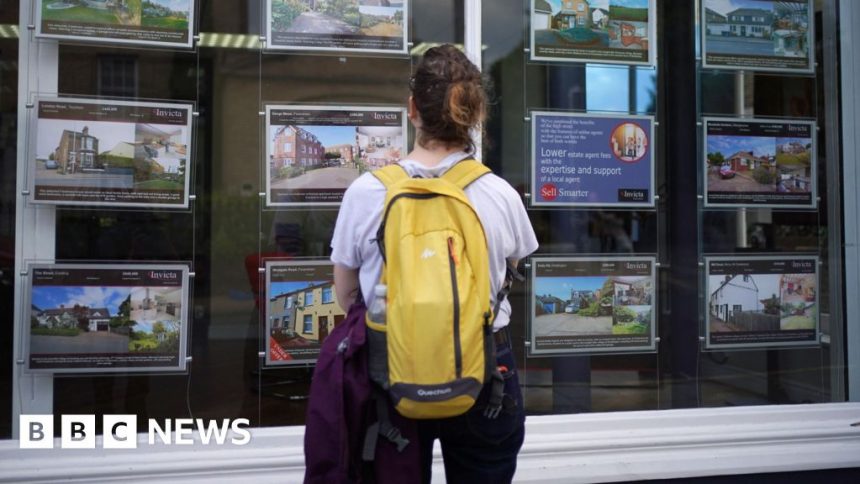Housing demand wanes as buyers bank on rate cut
 PA Media
PA MediaHouse buyers are putting off purchasing a new home until the Bank of England cuts interest rates, evidence suggests.
UK housebuilder Crest Nicholson was forced to issue a profit warning after it said sales momentum had softened since Easter due to volatile mortgage rates as well as buyers now expecting borrowing costs to drop later this year.
Meanwhile, a survey of chartered surveyors found that demand for homes had weakened in May.
Financial markets are forecasting that the Bank of England could cut interest rates in August or September.
Crest Nicholson reported a pre-tax loss of £30.9m for the six months to the end of April, including the impact of exceptional costs, compared to a £28.4m profit over the same period last year.
The housebuilder said that while “the spring selling season started well”, it added: “Momentum has softened slightly since Easter, reflecting the volatility in mortgage rates and the expectation of a base rate reduction coming later in the year than previously expected.”
It added: “The imminent general election is creating some short-term uncertainty, but this is anticipated to be alleviated in July once the outcome is known.”
The firm now expects adjusted full-year profits of between £22m to £29m. Analysts had expected the company to announce profits of around £38m.
Crest Nicholson’s share price tumbled by nearly 12% to 212.4p.
A survey by the Royal Institution of Chartered Surveyors (RICS) found that demand had weakened in May.
Tarrant Parsons, senior economist at RICS, said a recent recovery in the housing market “appears to have slipped into reverse of late” which he blamed on higher mortgage rates in the past couple of months.
However he predicted that this was “delaying, rather than derailing, a modest improvement going forward”.
“Indeed, respondents continue to envisage a more positive trend in sales activity coming through over the year ahead, although this is likely predicated on the Bank of England being able to start lowering interest rates in the coming months.”
Those surveyed by RICS said that demand was weakest in both south east and south west England.
In contrast, prices were still robust in Scotland and Northern Ireland.







